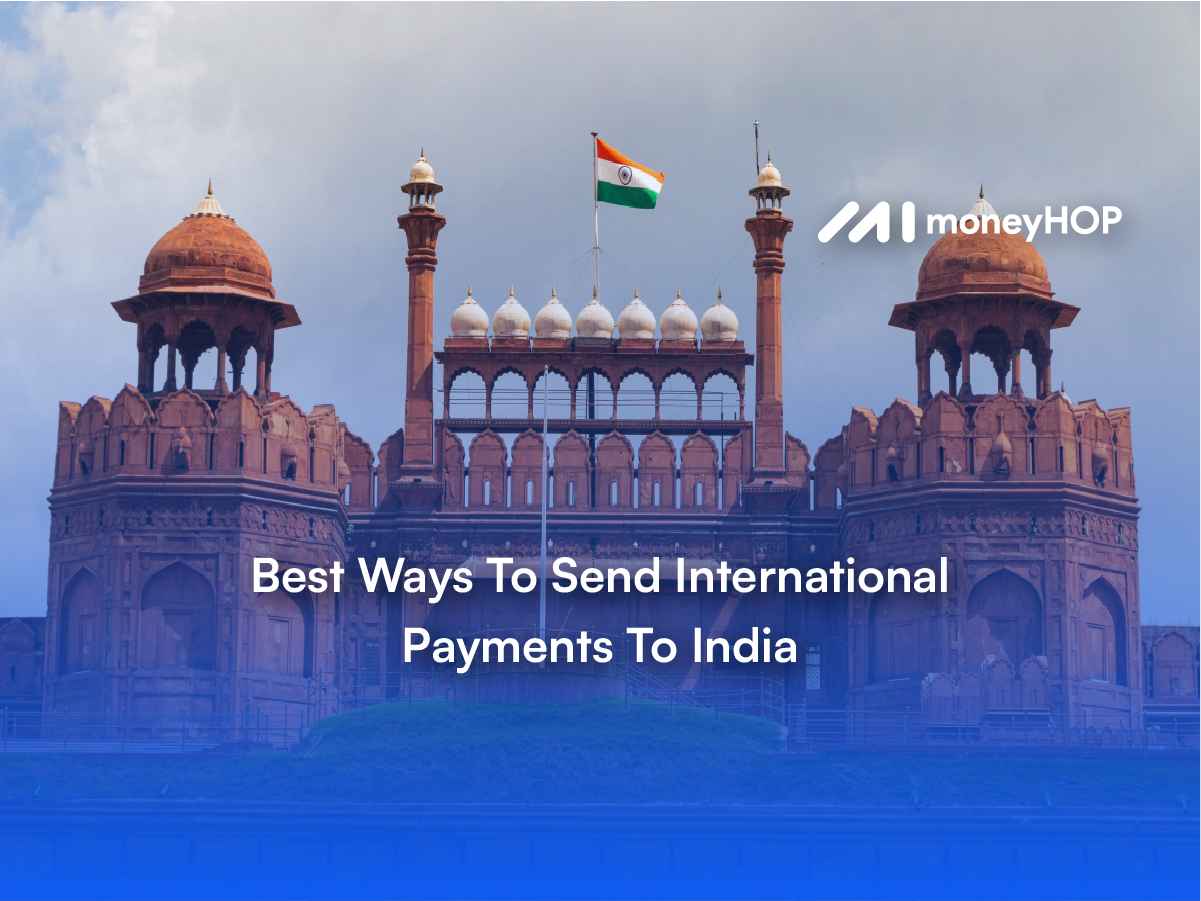In 2023, India sealed its position as the globe’s leading recipient of remittances by rising at a rate of 12.3% and reaching USD 125 billion. Significant contributors to India are the USA, the UK, and Singapore, which constitute 36% of international remittances. The USA stands as a primary contributor, while the UAE contributes 18% and is the second-largest contributor. About a projection for the year 2024, the World Bank estimates that growth will rise by 8% as it is predicted that remittances are going to reach $135 billion. In light of these developments, our exploration into the best choice for international payments to India brings importance by elaborating on crucial aspects such as exchange rates, transaction costs, timeliness, and ease. Join us in the process of understanding cross-border transactions and offering decision-making tips in this dynamic global economy.
Modes of sending international payments to India
- Traditional Bank Transfers
- Online Money Transfer Services
Traditional Bank Transfers
Direct inward remittances to India via conventional bank transfers are processed by Indian banks, such as the State Bank of India, HDFC, ICICI, and Axis Banks, among others, alongside some foreign banks. These transactions under the governance of the Reserve Bank of India are secure, though they take longer and cost more than newer methods like online transfers. They are primarily used for remittances to family, investments, or by Indians living outside India so that they can send money back home. Even with the higher costs and slow transfers, people still use this approach because it is reliable and provides a significant contribution to India’s economy by attracting foreign currency.
| Pros | Cons |
|---|---|
| Widely Accepted across the globe | Charges are high due to hidden charges & currency exchange markups |
| Offers secure transactions | It can take up to 2–5 business days |
| Acts as a reliable source for money transfers | Less user-friendly compared to online money transfer service providers |
| Provides flexibility in the transfer of funds through SWIFT or regular transfers | It requires a lot of paperwork to send or receive money |
| Suitable for transferring large amounts | Less transparent to its customers with regard to charges and fees |
Online Money Transfer Services
The country’s economy also relies on sending money online to India, and nowadays it has become easier with the presence of major global companies like Western Union, MoneyGram, and PayPal in this field. And some fintech companies, such as Wise, Remitly and WorldRemit, have user-friendly interfaces and good exchange rates, making the process simple. The Reserve Bank of India closely monitors those transactions to make them safe, and technology makes them more secure and efficient. This entire system is a great support to lots of families in India and contributes significantly to foreign exchange reserves, showcasing its importance around the world.
| Pros | Cons |
|---|---|
| Service charges are lower compared to banks | Technological illiteracy of people to use the online platform |
| A swift & convenient way to transfer money across borders | Limitation in the transfer of amount per transaction |
| Provides bank-level security for all international money transfers | Problem of false identity |
| Transparent & no hidden charges levied to customers | |
| Provides round-the-clock customer support |
Key factors affecting international money transfers:
- Exchange Rates: Rate at which the currency gets converted to INR
- Transaction Fees: Fees & charges levied by service providers on remittances
- Transfer Speed: The speed of transfer of funds to reach the destination
- Payment Method: Choosing the mode of transfers that suits the requirements (Traditional banks/Online Transfers)
- Regulatory Compliance: Adherence to the terms and conditions of Indian Financial Regulations
Why pay more for international money transfers when moneyHOP is here?
- NO hidden fees
- ZERO convenience fees
- Real-time updates
- Lowest exchange rates
Final Thoughts
In 2024, the transfer of international payments to India offers a wide variety of options. The choice depends on such considerations as the amount, degree of urgency, cost and personal comfort. Make sure to keep abreast of the latest changes in money transfer service providers, as the sector is changing rapidly. This demands a delicate balance between cost, speed and security. By weighing your alternatives and keeping updated, you can make sure that your cash reaches the intended destination in India securely. Your choice will depend on the specifics of your needs and should be carefully weighed to make an informed decision.

Leave a Reply